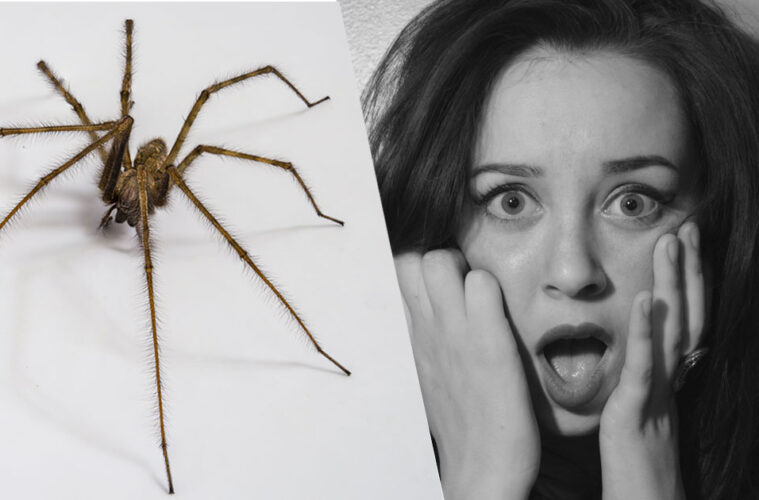As the leaves begin to change and the air turns crisper, the United Kingdom experiences a peculiar natural event that may send shivers down your spine – spider season. This annual phenomenon, which typically occurs in the late summer and early autumn months, sees an increase in spider activity as these eight-legged arachnids prepare for the colder months ahead. While it may be a source of dread for some, spider season is a fascinating and important part of the UK’s natural world.
Why Does Spider Season Happen?
Spider season is primarily triggered by a combination of environmental cues and biological factors. As autumn approaches, the temperatures drop, and the days become shorter. These changes in weather and light levels signal to spiders that it’s time to find a mate and lay their eggs.
One of the most noticeable aspects of spider season is the sudden increase in the number of spiders you might find in and around your home. This is because many spiders are seeking shelter from the impending cold weather. They are attracted to the warmth and protection provided by our houses, garages, and sheds, leading to a higher likelihood of encountering them indoors.
Types of Spiders in the UK
The UK is home to a variety of spider species, and you’re likely to encounter several of them during spider season. Some of the most common spiders you might come across include:
1. House Spiders (Tegenaria spp.): These are large, fast-moving spiders often found in homes. They are responsible for many of the indoor spider sightings during spider season.
2. Garden Spiders (Araneidae): These large orb-weaving spiders are often spotted in gardens, spinning intricate webs to catch insects.
3. Money Spiders (Linyphiidae): These tiny, delicate spiders are found in a wide range of habitats and are often associated with autumn.
4. Cupboard Spiders (Steatoda grossa): Known for their distinctive markings, these spiders often make their homes in dark corners and crevices indoors.
The Mating Ritual
One of the most captivating aspects of spider season is the mating ritual. Males often go on a quest to find females, which can be a perilous journey. In some species, males must perform intricate courtship displays or even offer gifts of wrapped prey to the female to prove their suitability as a mate.
Once mating is successful, female spiders may lay hundreds of eggs. They carefully construct egg sacs, which they then hide away in sheltered locations. These sacs protect the eggs from the harsh winter weather, and spiderlings typically emerge in the spring when conditions are more favourable.
Benefits of Spider Season
While it’s common for many people to fear spiders, these arachnids play a vital role in the ecosystem. Spiders are natural pest controllers, as they feed on a wide variety of insects, including flies, mosquitoes, and garden pests. Their presence helps maintain the balance of local ecosystems and reduces the need for chemical pesticides.
Moreover, the silk produced by spiders is an incredible material. It is stronger than steel of the same diameter and is being researched for potential applications in medicine and industry.
Dealing with Spider Season | How To Get Rid of Spiders in your Home
Getting rid of spiders in your home can be accomplished through a combination of preventive measures and direct removal techniques. Here’s a step-by-step guide:
1. Regular Cleaning and Clutter Reduction:
– Spiders like to hide in cluttered areas. Keep your home clean and organised to minimise their hiding spots.
– Hoover regularly to remove spider webs, eggs, and any small insects that might be attracting them.
2. Seal Cracks and Gaps:
– Spiders can enter your home through small openings. Seal cracks, gaps, and crevices in windows, doors, and walls using caulk.
– Install door sweeps on exterior doors to block entry points.
3. Reduce Outdoor Attractants:
– Trim vegetation close to the house, including shrubs and trees, to reduce the likelihood of spiders finding their way indoors.
– Ensure outdoor lighting is not too bright, as it can attract insects that spiders feed on.
4. Use Natural Repellents:
– Spiders are deterred by certain scents. Consider using natural repellents such as essential oils like peppermint, eucalyptus, or lavender. Mix a few drops of essential oil with water and spray it around entry points and corners.
5. Keep Food Sealed:
– Spiders are also attracted to food sources. Keep all food in airtight containers and clean up crumbs promptly.
Remember that while spiders can be a nuisance, they are also beneficial because they eat other pests. If you can tolerate a few harmless spiders in your home, it can actually help keep other insect populations in check.
Conclusion
Spider season in the UK is a captivating natural phenomenon that may make you look at these arachnids in a new light. Instead of fearing them, we should appreciate the valuable role spiders play in maintaining the balance of our ecosystem. As autumn unfolds and spider season reaches its peak, it’s an opportunity to observe these fascinating creatures and coexist with them in a way that benefits both our homes and the natural world.





